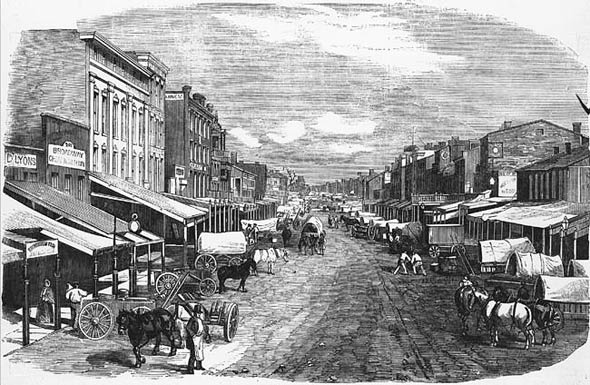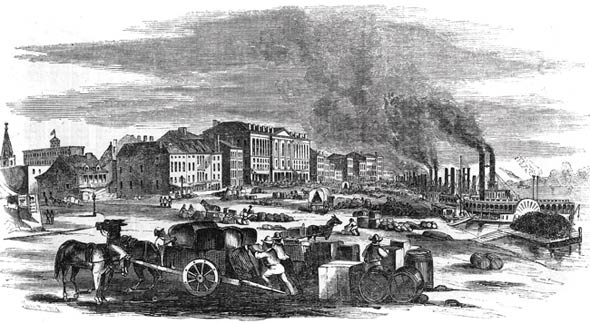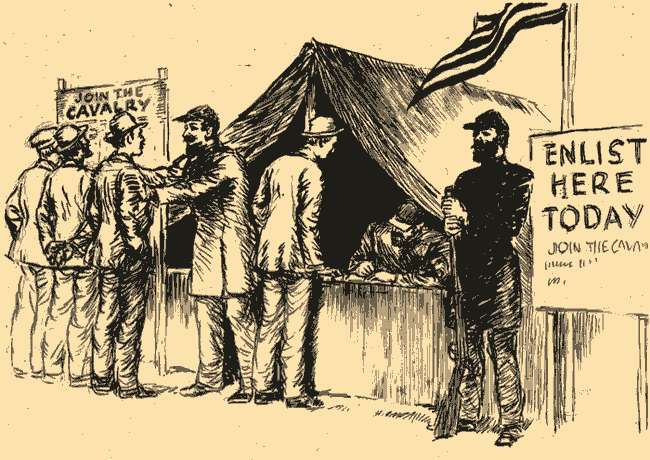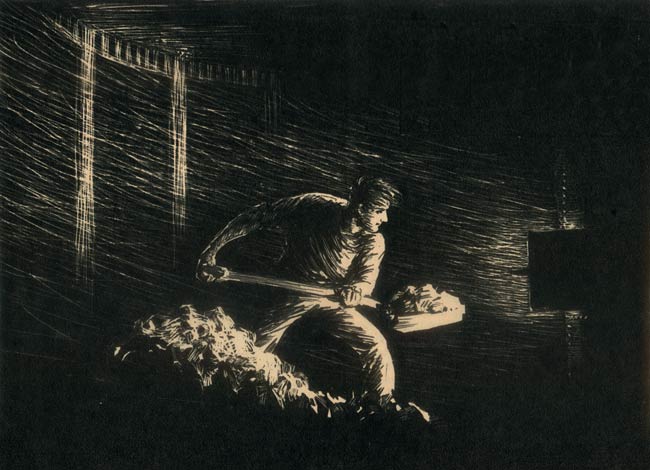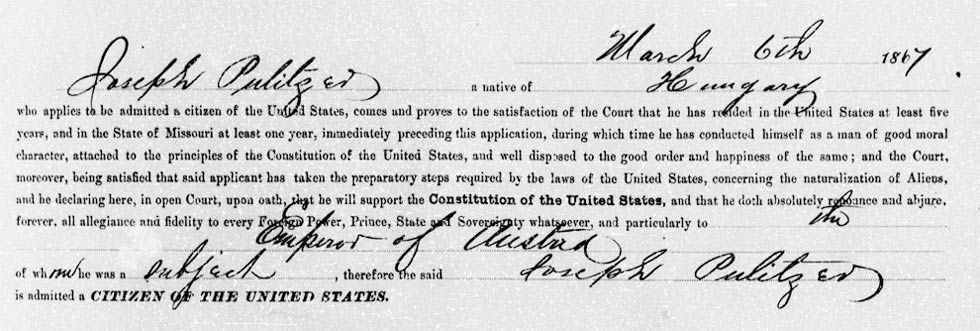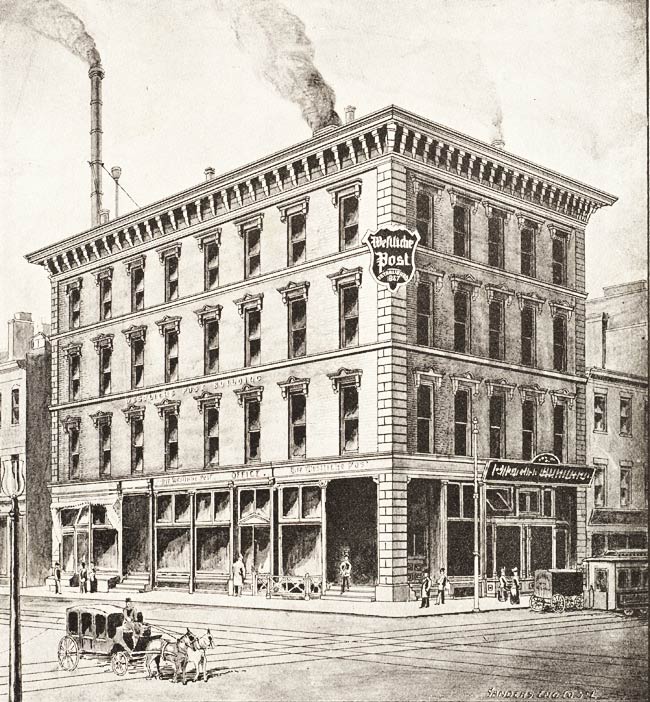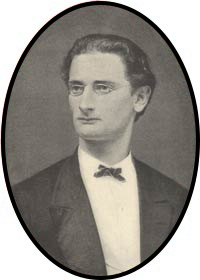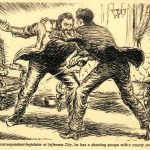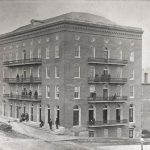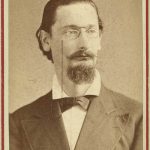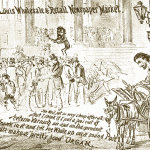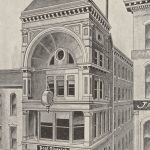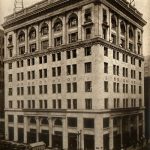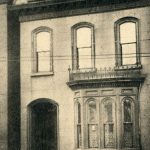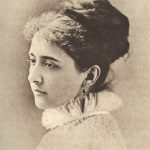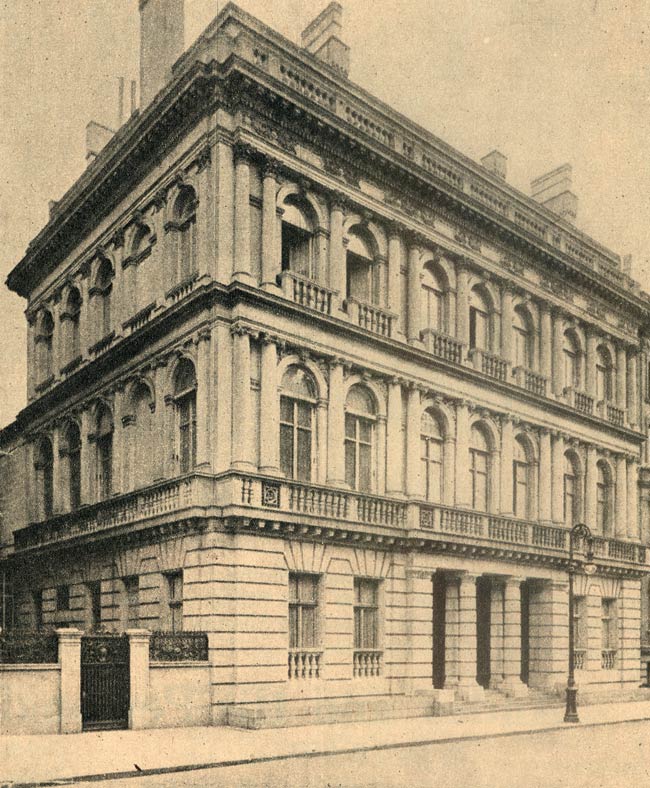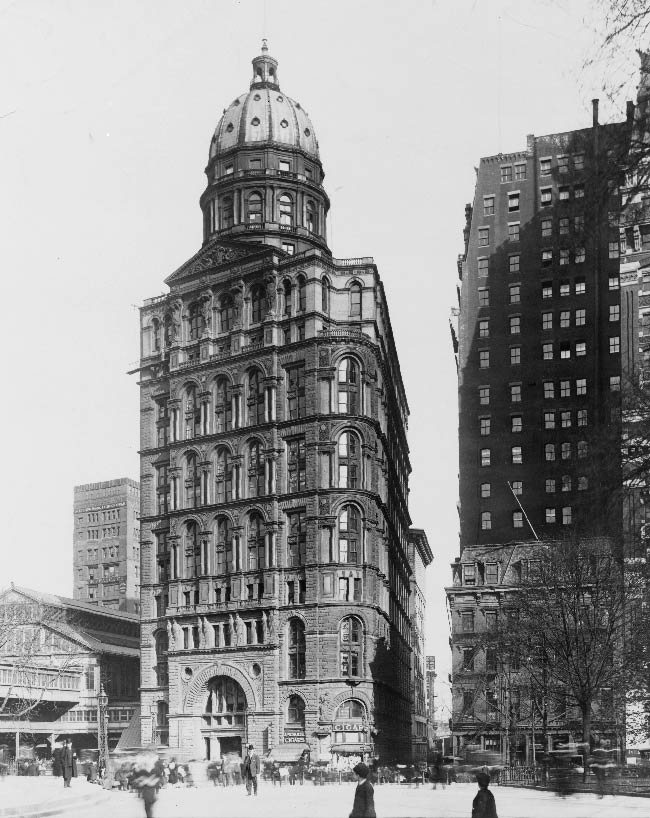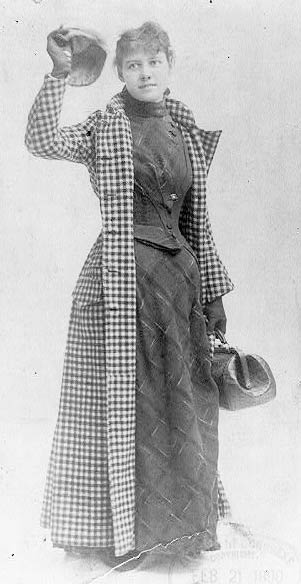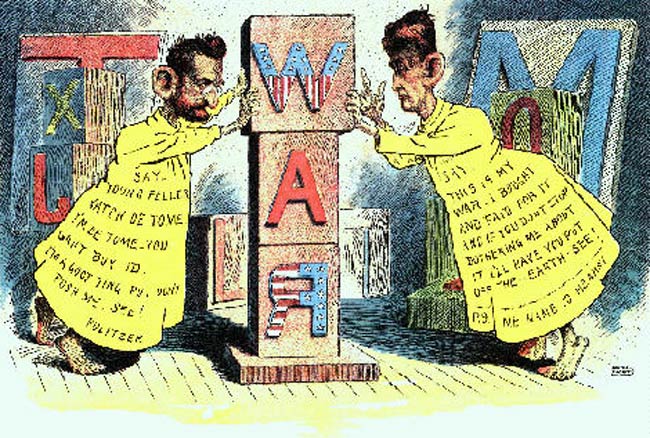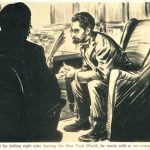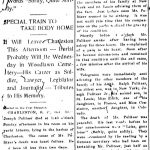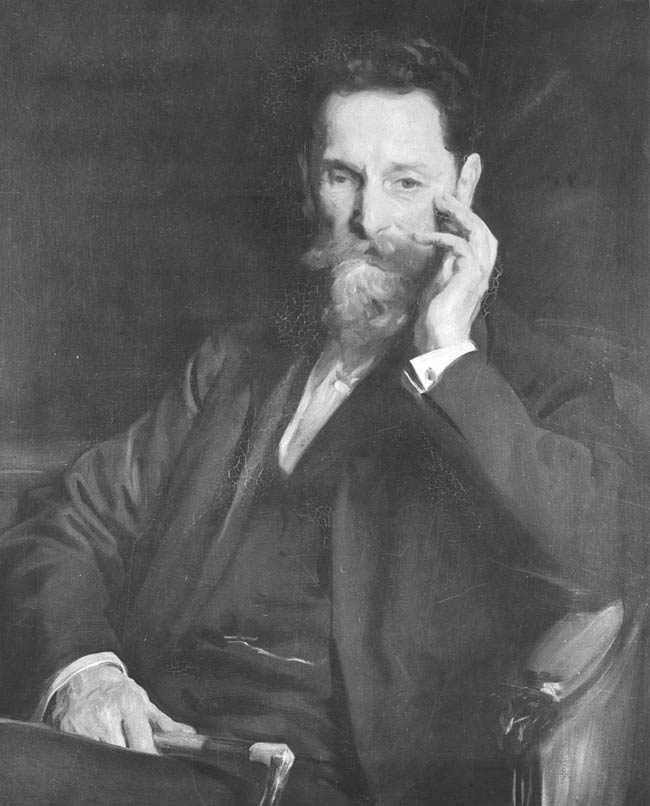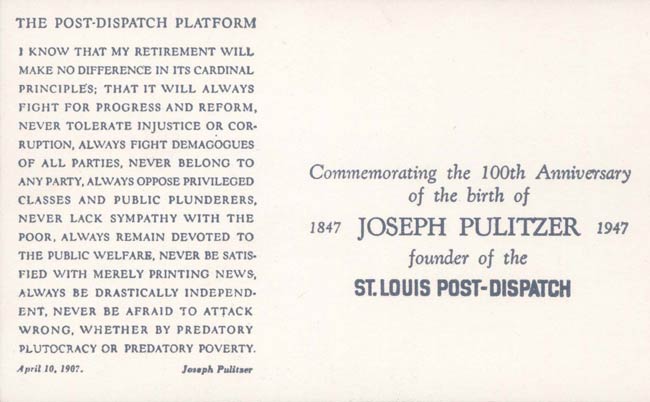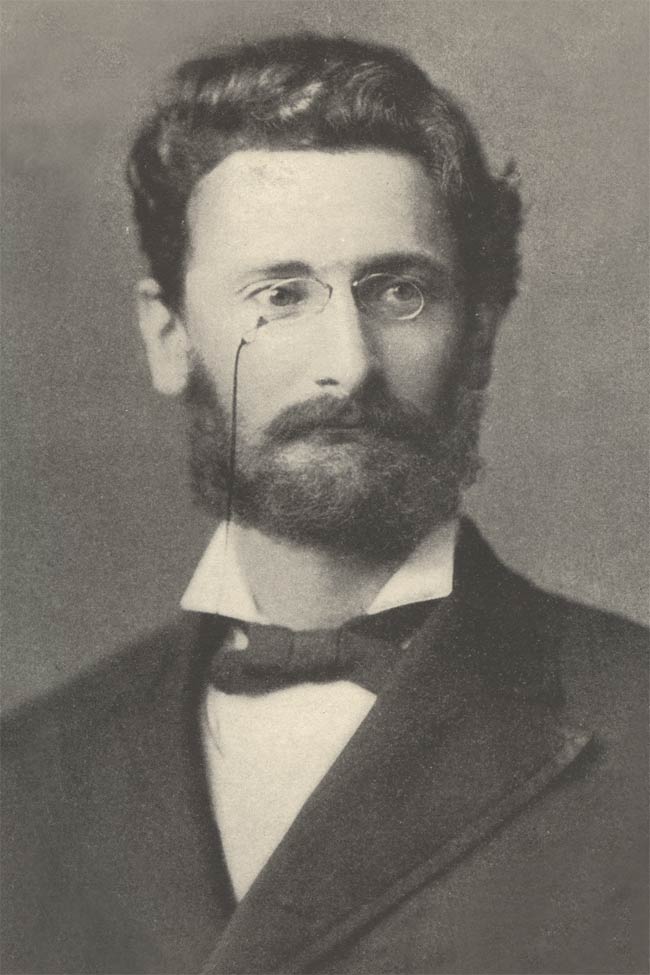
Joseph Pulitzer

Introduction
Joseph Pulitzer suffered from poor health and bad eyesight most of his life, but his natural curiosity and eagerness to learn helped him succeed as a laborer, legislator, and newspaperman. Pulitzer created a journalistic style that is still in use today. Mixing thought-provoking editorials and news with crime and public interest stories, Pulitzer made the St. Louis Post-Dispatch and the New York World profitable papers. He is well known for creating the Pulitzer Prize.
Early Years
Joseph Pulitzer (originally Politzer) was born April 10, 1847, in Mako, Hungary, to Philip Politzer and Louise Berger. He came from a large family, but only he and his brother Albert survived to adulthood. When his father retired from the grain merchant business in 1853, the family moved to Budapest. The children were educated in private schools or by tutors and learned to speak both French and German. Joseph’s father died when he was only eleven years old. After his mother married Max Blau, Joseph decided to head out on his own at the age of seventeen.
Pulitzer Comes to America
Pulitzer tried to join the military but was rejected by the Austrian army, the French Foreign Legion, and the British army. He was finally recruited in Hamburg, Germany, to fight for the Union in the American Civil War in August 1864. Pulitzer could not speak English when he arrived in Boston Harbor. He made his way to New York City, and enlisted with a mostly German cavalry unit. Pulitzer loved to ride horses even after he lost his sight. His brief military career ended on June 5, 1865, with an honorable discharge.
A Rough Beginning
Pulitzer returned to New York City after the war to find work. Competition from other Civil War veterans for jobs left Pulitzer often unemployed and sometimes homeless. He left New York and took a train to St. Louis, Missouri. Arriving in East St. Louis October 10, 1865, Pulitzer was penniless and had no way to cross the Mississippi River. He agreed to shovel coal on the ferry to gain passage across the river.
Pulitzer worked many jobs while in St. Louis. He was a deckhand, a hack driver, a gravedigger during the cholera epidemic in 1866, and briefly a waiter at Tony Faust’s restaurant. His worst job was caring for mules at the Jefferson Barracks. His big break came when he was hired to record land rights for the Atlantic and Pacific Railroad and he got to travel by horse throughout Missouri. This job prompted him to study the law. He became a naturalized citizen on March 6, 1867, and was admitted to the bar in 1868.
Pulitzer’s Luck Turns Around
Pulitzer continued to learn English while in St. Louis and spent many hours at the Mercantile Library. There he met Carl Schurz, coeditor and part-owner of the German newspaper, the Westliche Post. Schurz admired the young Pulitzer and hired him as a reporter in 1868.
Pulitzer tirelessly sought the facts and got the story first, often irritating his peers in the process. While he covered the Republican state convention in Jefferson City in 1869, Pulitzer was nominated to run in a special election against Democrat Samuel Grantham as a representative for the Fifth District in St. Louis. Against the odds, the 22-year-old Pulitzer won and took his seat January 5, 1870.
While a representative, Pulitzer tried to root out corruption in his district. He introduced a bill to abolish the St. Louis County Court, which hired county officials and awarded money for building projects. Pulitzer saw that contracts were being given to friends of the court. One such friend was Captain Edward Augustine, a building contractor and supervisor of registration for St. Louis County. On the evening of January 27, 1870, at the Schmidt Hotel in Jefferson City, Augustine became angry at Pulitzer’s accusations that he was corrupt, and called Pulitzer a liar.
Pulitzer left to get his gun, returning to the hotel to demand an apology, which Augustine refused to give him. Instead, he threw a punch at Pulitzer, who shot him in the leg with his old army pistol. Pulitzer pleaded guilty and was fined a large sum. His friends helped pay the fine, and his bill to end the county court eventually passed. Pulitzer ran for the House seat again in 1870, but lost to Nicholas M. Bell. Shortly after his loss, Pulitzer switched parties and became a Democrat.
The St. Louis Post-Dispatch
Pulitzer loved politics, but his true passion was journalism. When offered part ownership and a position as managing editor of the Westliche Post in 1872, Pulitzer accepted. He sold his interest in the paper in 1876 and took time off to travel and visit home in Hungary. He returned to St. Louis and bought the St. Louis Dispatch in 1878 at a public auction for $2,500. John A. Dillon, owner of the Post, agreed to merge his paper with Pulitzer’s, and the St. Louis Post and Dispatch was born December 12, 1878. The name was soon shortened to the Post-Dispatch, and the paper grew from four to eight pages.
Pulitzer worked on every aspect of his paper and attacked the evils of St. Louis with as much energy as he had in the state legislature. He exposed tax evaders, gambling rings, insurance fraud, monopolies, bankers, and city corruption. He considered his paper a vehicle for the truth and made many enemies in the process. He also increased circulation by the thousands and made the paper a huge success.
During this time, Pulitzer began courting Kate Davis. They married on June 19, 1878, at the Episcopal Church of the Epiphany in Washington, D.C. The Pulitzers had seven children together: Ralph, Lucille, Katherine, Joseph Jr., Edith, Constance, and Herbert.
Pulitzer Takes on the “World”
By the early 1880s, Pulitzer’s health declined further. He decided to take a vacation with his family, but before leaving, he bought the New York World from Jay Gould on May 10, 1883. The family moved to New York City, although Pulitzer continued to own the St. Louis Post-Dispatch. He left his partner, John Dillon, in charge. Pulitzer managed his new paper with the same intensity that he had in St. Louis. By the 1890s, he had become nearly blind, and his nerves were so fragile he had to soundproof his bedroom at home, as well as his yacht, the Liberty, the one place he could find peace and quiet.
Pulitzer went on to do great things in his new city. He became a congressman from New York in 1884. Finding it difficult to run the World and be in Washington, D.C., at the same time, he gave up his seat on April 10, 1886.
Pulitzer built a sixteen-story building for the World in 1890, the tallest building in New York City at the time. He continued to fight crime and criticize the rich with his paper. Some of his proudest moments include breaking up Standard Oil in 1911 and making campaign contributions public. He was very proud that his paper helped to elect Grover Cleveland as president in 1884 and his readers helped raise enough money to pay for the pedestal to erect the Statue of Liberty in New York City’s harbor.
The World was known for its investigative journalism. Pulitzer hired Nellie Bly to report on wrongdoings in New York’s institutions. Her investigative reporting and publicity stunts were hugely popular with readers.
Yellow Journalism
The motto Pulitzer displayed in his newsroom was “Accuracy! Terseness! Accuracy!” He believed in reporting the facts and nothing but the facts in his papers; however, when William Randolph Hearst bought a competing paper, the New York Journal, in 1895, Pulitzer forgot his standards.
To sell more papers, both Pulitzer and Hearst began to write shocking stories, gory headlines, and use lots of photographs and cartoons to attract readers—a journalism style now known as “yellow journalism.” The start of the Spanish-American War in 1898 intensified the rivalry. After several years of trying to outdo Hearst, Pulitzer finally realized his folly and again tried to report only the facts.
The End
Blind and practically an invalid in his later years, Pulitzer required the help of several people to get through the day. He could not get out a lot because of his nervous condition, but his curiosity and desire to learn never stopped, and he continued to control and influence the editorial page of his newspapers. His secretaries read to him every day and were required to provide him with lively conversation. Pulitzer died of heart failure aboard his yacht on October 29, 1911, at the age of 64. He is buried at Woodlawn Cemetery in the Bronx.
Joseph Pulitzer’s Legacy
Pulitzer’s sons became owners and managers of both the New York World and the St. Louis Post-Dispatch after his death. While the World folded in 1931, the Post-Dispatch continues to be published, although it is no longer run by a member of the Pulitzer family.
Pulitzer spent his life fighting corrupt government, social evils, and most of all, the extremely wealthy. He never backed down from the truth despite both physical and legal threats from those he exposed. Although rich himself, he paid his employees well and was a generous man.
Pulitzer’s gift of two million dollars in 1903 helped create the Columbia University School of Journalism, which opened September 30, 1912. Today, the school oversees the Pulitzer Prize, an award given to those who excel in journalism, literature, and music. The prize began with a donation from Pulitzer and was first awarded in 1917.
Text and research by Laura R. Jolley
References and Resources
For more information about Joseph Pulitzer’s life and career, see the following resources:
Society Resources
The following is a selected list of books, articles, and manuscripts about Joseph Pulitzer in the research centers of The State Historical Society of Missouri. The Society’s call numbers follow the citations in brackets.
Articles from the Missouri Historical Review
- Johns, George S. “Joseph Pulitzer, Part I.” v. 25, no. 2 (January 1931), pp. 201-218.
- Johns, George S. “Joseph Pulitzer, Part II.” v. 25, no. 3 (April 1931), pp. 404-420.
- Johns, George S. “Joseph Pulitzer, Part III.” v. 25, no. 4 (July 1931), pp. 563-575.
- Johns, George S. “Joseph Pulitzer, Part IV.” v. 26, no. 1 (October 1931), pp. 54-67.
- Johns, George S. “Joseph Pulitzer, Part V.” v. 26, no. 2 (January 1932), pp. 163-178.
- Johns, George S. “Joseph Pulitzer, Part VI.” v. 26, no. 3 (April 1932), pp. 267-280.
Articles from the Newspaper Collection
- “Commemorating the 100th Anniversary of Joseph Pulitzer, Founder of the Post-Dispatch, April 10, 1847 – Oct. 29, 1911.” St. Louis Post-Dispatch. April 6, 1947. [Reel # 42762]
- “Joseph Pulitzer Dead.” St. Louis Post-Dispatch. October 30, 1911. p 1. [Reel # 41974]
Books and Articles
- American National Biography. New York: Oxford University Press. 1999–2002. vol. 12, pp. 927-930. [REF 920 AM37]
- Barrett, James Wyman. Joseph Pulitzer and his World. New York: Vanguard Press, 1941. [F508.1 P966b]
- Christensen, Lawrence O., William E. Foley, Gary R. Kremer, and Kenneth H. Winn, eds. Dictionary of Missouri Biography. Columbia: University of Missouri Press, 1999. pp. 630-631. [REF F508 D561]
- Dictionary of American Biography. New York: Charles Scribner’s Sons, 1928–1995. vol. VIII, pp. 260-263. [REF 920 D561]
- Ireland, Alleyne. Joseph Pulitzer: Reminiscences of a Secretary. New York: Mitchell Kennerly, 1914. [F508.1 P966i]
- Seitz, Don Carlos. Joseph Pulitzer, His Life & Letters. New York: Simon & Schuster, 1924. [F508.1 P966s]
- Swanberg, W. A. Pulitzer. New York: Scribner, 1967. [F508.1 P966sw]
Manuscript Collection
- Joseph Pulitzer Jr. Papers (S0060)
This collection contains 163 reels of microfilm and consists of the correspondence, subject, and business files of Joseph Pulitzer’s son, manager of the St. Louis Post-Dispatch. The original papers can be found at the Library of Congress Manuscript Division, Washington, D.C.
Outside Resources
These links, which open in another window, will take you outside the Society’s website. The Society is not responsible for the content of the following websites:
- Encyclopedia of World Biographies
This website contains biographies of famous people from around the world, including a short biography on Pulitzer. - Joseph Pulitzer Papers (MS1033)
The Rare Book and Manuscript Library at Columbia University holds Pulitzer’s personal papers. This website contains the collection’s online finding aid. The papers include the correspondence and business records of Joseph Pulitzer, his family, and the operation of the St. Louis Post-Dispatch. - The Pulitzer Prizes
This website contains information on the Pulitzer Prize, as well as a biography on Pulitzer written by Seymour Topping, former administrator of the Pulitzer Prize.


